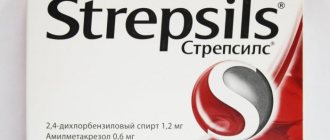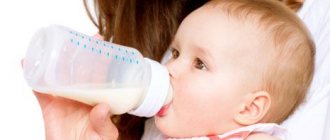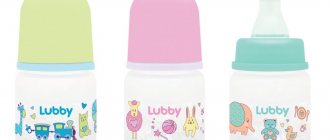Anything is possible during breastfeeding. Sometimes a new mother may feel unwell. And sometimes an unexpected illness can cause fever, body pain and discomfort, foreshadowing a viral disease. What to do in this case? How can you cure a cold or acute respiratory infection while breastfeeding without harming the baby? What can a nursing mother take for fever? What antipyretics are allowed for breastfeeding?
A logical question immediately arises: how can you lower the temperature of a nursing mother? And what antipyretic drugs are better to use - folk, pharmaceutical or none at all? Just calmly wait for the ailment to go away on its own?
As a rule, when breastfeeding, a woman carefully monitors her health, because any virus can be transmitted to the baby during feeding. Antipyretics during lactation should be taken with great caution. Therefore, this issue requires study.
For what reason does the temperature rise during hot water?
- Any acute respiratory infection or acute respiratory viral infection can provoke a fever, as the body begins to actively fight the cold. An increase in temperature means that the immune system is fighting off pathogens.
- A high temperature in a nursing mother may be an indicator of breast inflammation associated with stagnation of milk - lactostasis. The blocked milk duct becomes inflamed and causes fever.
- Internal inflammation of any organ, gynecological diseases, joint pain can also cause fever.
- Poisoning and disruption of the digestive system may be accompanied by fever.
Whatever the reason for fever during breastfeeding, it is recommended to consult a doctor immediately. The specialist will determine the main source of the fever and prescribe treatment that will be effective and safe for the infant.
The dangers of ignoring high thermometer readings and possible consequences
Contrary to popular belief, an increase in temperature (even up to 40 degrees) does not pose a danger in itself, provided that it lasts less than 2-3 days. But the case of a woman who is breastfeeding a small child is special. A small organism does not have the same level of protection as an adult, so it is often impossible to do without medical help.
A high temperature that a woman has day after day can provoke negative consequences associated with impaired nutrition of the heart muscle and brain tissue, and increase the risk of blood clots and heart attack. In some cases, seizures and cerebral swelling may occur.
What should a nursing mother do if she has a fever?
- First of all, you need to determine the cause of the fever in a nursing mother. If this is not associated with inflammation, but is only the result of a cold or viral infection, there is no need to immediately lower the temperature. It may be an indicator of the body's fight against infection.
- Drink more clean drinking water. Warm water helps remove pathogenic bacteria from the body.
- If, while breastfeeding, it is not possible to immediately contact a specialist, and the temperature has risen above 38.5, you can bring it down by rubbing it with vinegar and vodka: by 1 tbsp. l. vodka, add 1 tbsp. l. food bite and dilute the mixture with warm boiled water. Moisten a piece of clean bandage or cotton wool and wipe the armpits, elbows and knees, neck and feet.
- There are a number of pharmacological agents that can be used by a nursing mother as an antipyretic at high temperatures. It is only important to carefully study the instructions for the drug. It always indicates whether it can be used for breastfeeding.
- Herbal decoctions and teas can be an excellent alternative to antipyretic drugs during breastfeeding. It is only important to determine the cause of the temperature increase. The herbal mixture, properly brewed and taken according to a certain system, quite quickly relieves fever and pain.
- A cold compress on the forehead eases the condition of the nursing mother's body during fever and gradually reduces the fever.
How to lower the temperature
If we talk about medications for fever, then the mother needs to choose, first of all, those medications that are compatible with breastfeeding, which means they will not harm the baby. You can find out about the compatibility of the drug with breastfeeding from its official instructions, as well as from the Thomas Hale reference book and the electronic reference book called E-LACTANCIA.
Let's look at the safest, most studied and most common medications for fever allowed during lactation.
Paracetamol
Paracetamol has been known to mankind for more than a century. It belongs to non-steroidal anti-inflammatory drugs (NSAIDs), and therefore has three effects:
We recommend reading: Is it possible to breastfeed at fever?
- antipyretic;
- pain reliever;
- anti-inflammatory.
The latter effect is weakly expressed, but thanks to this, paracetamol does not irritate the gastric mucosa, like its counterparts from the same group. Paracetamol is especially good at reducing fever during ARVI.
Although the drug passes into breast milk in relatively large quantities (according to some sources, 20-24% of the dose taken by the mother), no negative effects on the baby were noticed. And this is understandable, because the drug is also available in the form of syrup for children from 2 months, which indicates its safety.
The recommended single dose of paracetamol as an antipyretic is 500 mg. If necessary, you can take the next tablet no earlier than 6 hours later. A maximum of 4 g per day is allowed.
There are many trade names under which paracetamol is produced: Panadol, Tylenol, Efferalgan, Rapidol, Cefekon, Milistan, etc.
For adults, the drug is used in the form of tablets (coated and soluble) and suppositories.
Ibuprofen
The second drug of choice is ibuprofen. It can also be taken during lactation without fear of harming the baby. The product is successfully used in the form of syrup in pediatric practice to treat children from 3 months.
Like paracetamol, ibuprofen has 3 properties common to the entire group of NSAIDs. Therefore, it is effective not only against temperature, but will also help with headaches, toothaches, painful onset of menstruation, bruises, etc.
Less than 1% of the dose taken by the mother ends up in milk. And after 3 hours there will be practically no active component in the blood or milk. Therefore, if you have any doubts about the pill you took, you can feed your baby 3 hours after taking it.
It is recommended to take 200 mg up to 4 times a day. If the temperature is very high, you can drink 400 mg once. The maximum allowed per day is 800 mg.
Trade names of the drug: Nurofen, Ibufen, Ibuklin, Ibuprom, etc.
The effect of treatment on the body of mother and child
There are many factors that influence the baby during breastfeeding. If, while breastfeeding, the mother of a newborn feels unwell and has a fever, before proceeding to treatment, you should check how much this remedy can harm the baby’s sensitive body.
- Toxicity of the drug. There are neutral antiseptic and antipyretic agents that cannot affect infants when used for a short time. Before using any drug, a nursing mother should carefully study the instructions.
- Quantity. When breastfeeding, the rate of medication intake is very important. Sometimes a one-time use of the drug is enough to reduce the temperature and affect the inflammatory process.
- Time. The daytime period, when the child is quite active, is more favorable for treating the mother while breastfeeding. At this time, the baby’s body is less susceptible to various kinds of external influences.
- Choice. Competent parents know that sometimes simple folk antipyretic methods are more effective than pharmacological agents. You can sometimes reduce your fever and get rid of the disease by following simple rules and following a certain system of procedures.
If the disease is so serious that antibiotics cannot be avoided, only then is it recommended to stop breastfeeding. In all other cases, with the support of a specialist, continue to breastfeed your baby and take all necessary actions to improve your well-being.
Antipyretics during breastfeeding: which ones are possible
Often a young mother experiences fever during lactation. What antipyretic drugs are indicated for mothers during breastfeeding? Below are tips and recommendations from leading pediatricians, therapists and gw consultants.
Fever during breastfeeding does not require weaning the baby from the breast; it is enough to choose the right and safe antipyretic drug for a nursing mother.
Approved drugs
Often, when the temperature rises, a nursing mother wonders what medications can be taken so as not to harm the baby, and how to bring down the temperature if it continues to rise, reaching 38 degrees.
- Paracetamol. This is a harmless antipyretic, which is recommended by experts for colds and viral infections to reduce fever, not only for adults, but also for children.
- Ibuprofen is an antiseptic that can be used during breastfeeding.
- Aspirin is a popular antipyretic and pain reliever approved for use by nursing mothers. However, this remedy should not be taken for long and with great caution, since acetylsalicylic acid can have a negative effect on the baby’s fragile body.
- Nurofen is another drug that doctors consider safe to take during breastfeeding.
- Effective drugs that relieve fever include suppositories, such as Cefekon, or its analogues.
Any antipyretic taken while breastfeeding should be chosen only after consultation with a specialist.
Read also
To prevent the formation of secondary lactase deficiency and the occurrence of an allergy to cow's milk protein, mothers should not exclude all dairy products from the diet, but should limit the consumption of products that contain whole cow protein.
There are many drugs that experts strongly recommend using to relieve newborns from colic. Although drops are not the only prescriptions from doctors. A diet for nursing mothers is something that every caring parent should pay attention to.
Contraindications
The following circumstances are contraindications to the use of antipyretics during lactation:
- If a child is prone to allergic reactions and is sensitive to most foods, it is necessary to refrain from taking any medications.
- Experts advise taking medications after breastfeeding.
- If you take medications regularly, between feedings the mother can express milk from the breast and pour it out. Before the next session, enough milk will be collected so that the baby has enough for one dose.
Taking medications during pregnancy and lactation: Dr. Komarovsky (video)
Rules for feeding
Even in the case of antipyretics approved for breastfeeding women, safety precautions must be taken to reduce the risk of accidental harm to the baby. Firstly, the treatment uses a reduced dosage (it is determined by the doctor based on the diagnosis, the age of the baby, and the general well-being of the mother). Secondly, you should adhere to a special regimen for taking the medicine.
The concentration of the medicinal substance in the blood reaches its peak half an hour after taking the medicine. The main part of the drug is eliminated after 2–3 hours. This means that you should first feed the baby, then immediately take the medicine and for the next couple of hours refrain from putting the baby to the breast (if the baby demands to eat, then use formula).
Another important condition is that you must carefully monitor the child’s well-being. If suddenly the mother notices that strange symptoms have appeared (skin rash, indigestion, fever in the child), immediately stop taking the medicine and consult a doctor. Further treatment with simultaneous breastfeeding can be continued only with the permission of the doctor.
Traditional methods of getting rid of fever
What can help a nursing mother with fever? Warm drinks, vitaminization and cleansing of the body are considered very effective during epidemics of viral diseases. This is an excellent prevention against infections and colds during breastfeeding. In addition, they have analgesic, antipyretic and antiseptic effects.
- Tea with raspberries. If health problems of a nursing mother have caused an increase in temperature, you can drink a cup of raspberry tea. Fresh berries added to tea will not only provide pleasure, but will also alleviate the patient’s condition. Raspberries are a natural antipyretic, lowering body temperature and causing profuse sweating. In winter, natural raspberries can be replaced with jam or frozen berries. At the first symptoms of a nursing cold, you can take tea with raspberries, and this will be an excellent prevention of the development of the disease.
- A decoction of currant leaves, mint, linden blossom and rosehip berries perfectly relieves fever and will not cause any harm to the child. There is only one limitation: you need to drink this tea little by little, as it can enhance lactation. This herbal mixture is an excellent cure for fever, colds and flu while breastfeeding.
- Honey and lemon. The combination of these two products gives an antipyretic effect. Just squeeze a teaspoon of lemon juice and mix with a teaspoon of honey. Hold in mouth for one minute and then swallow. However, this method is only good if the baby is not allergic to honey.
Freeing a nursing mother's intestines from toxins is a sure way to help the body recover and start the healing process.
How to relieve a fever: Komarovsky’s opinion
Also, a well-known pediatrician notes that Paracetamol can be alternated with Ibuprofen
Temperature does not affect the quality of breast milk and does not force the baby to refuse the mother’s breast, and modern medications can alleviate the mother’s condition even in such a difficult period. A woman will protect both herself and her child from more serious problems if she is as attentive as possible to her health, listening to the recommendations of specialists. Be healthy!
Prevention of colds and ARVI
A young nursing mother should take care of herself, because the health and peace of the baby depends on her. There are many ways to boost immunity and avoid fever during breastfeeding and prevent taking antipyretics:
- Don't get too cold. In the autumn-winter period, dress warmly. It’s better to play it safe and take gloves and a scarf with you than to suffer from a runny nose and headache later.
- Be outdoors more often. Walks with your child should be regular. This strengthens the baby and at the same time allows the young mother to regain strength.
- Ventilate the room at least three times a day.
- Avoid places with large crowds of people. Necessity will force you to visit a children's clinic or go to a store. But it is better to walk with a stroller in a park or square, where contact with people and transport is minimized.
- Choose foods for cooking carefully. Follow the storage rules, read the ingredients on the packaging, and pay attention to the production date.
- Take a contrast shower and keep the room clean.
Caring for an infant is a constant stress for a young mother. Sleepless nights, worry about the baby's health, breastfeeding - all this requires a lot of effort, patience and time from the mother. Sometimes a nursing woman’s temperature can rise simply due to overwork and weakness of the body. Therefore, healthy sleep, bed rest during illness and a little time given to yourself will help you recover easily and quickly, even without the use of antipyretic drugs.
How to reduce the temperature of a nursing mother? Which method should you choose? When breastfeeding, you should always start with the methods that are safest for your baby. Try to do without medications. Warm drinks, herbal decoctions, vinegar rubs and bed rest will help restore strength and relieve fever.
The dangers of Aspirin
This antipyretic drug is not currently used in the treatment of women undergoing breastfeeding. The reason is that scientists have proven its negative impact on the child. When taking Aspirin, more than 7% of the total concentration of the drug in a woman’s blood penetrates into milk. This is enough to cause side effects in a child. Particular harm is that it suppresses the formation of the enzyme cyclooxygenase (milk is less absorbed, the baby experiences vomiting or diarrhea), as well as intracranial hypotension (decreased intracranial pressure).
Another significant disadvantage of Aspirin is a decrease in the rate of synthesis of thromboxane A2, which is involved in blood clotting. This process in a child can manifest itself in the appearance of small hemorrhages on the skin (bursted blood vessels). Long-term use is dangerous due to internal bleeding.








